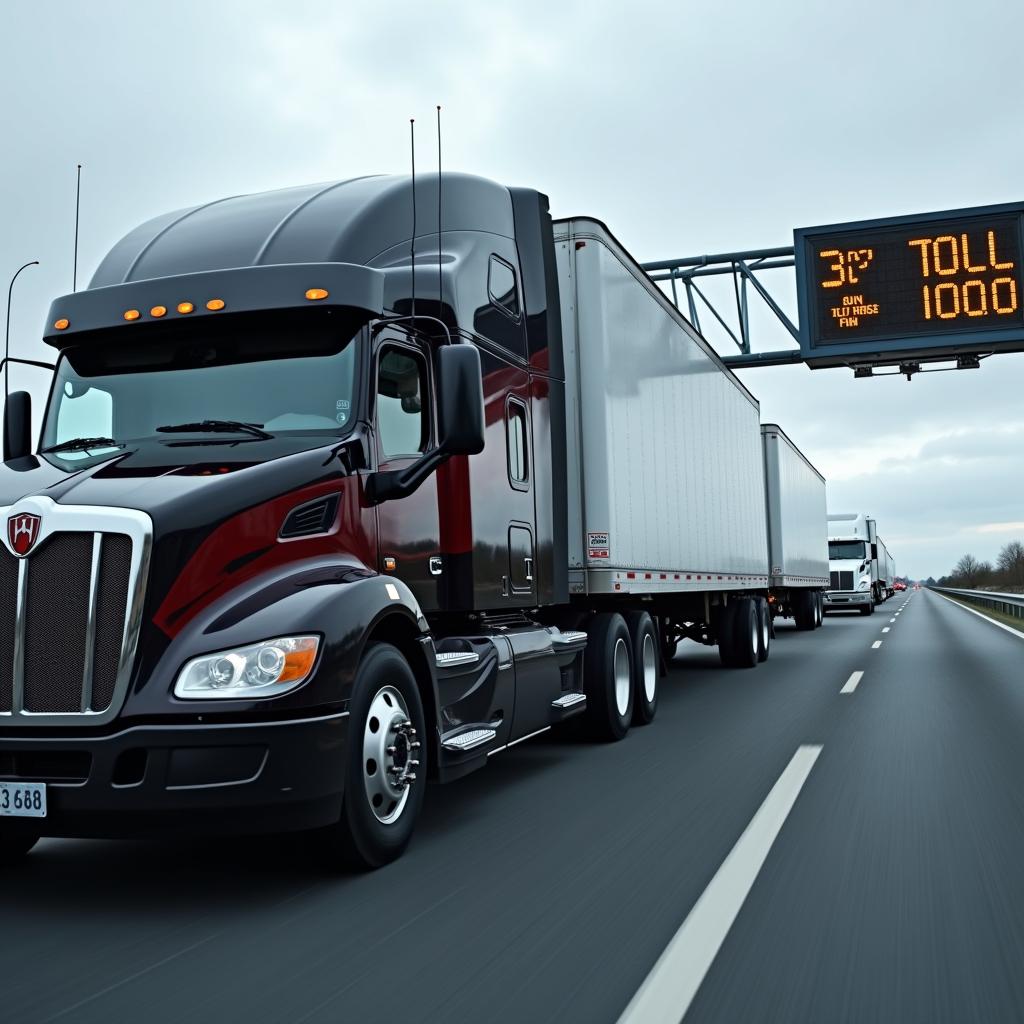How to Manage Toll Costs Efficiently for Your Trucking Fleet
In today’s competitive trucking industry, effective toll cost management for trucking fleets has become increasingly crucial for maintaining profitable operations. With the rising number of toll roads across the United States and varying payment systems, fleet managers need comprehensive strategies to control these expenses while ensuring smooth operations. This guide will help you understand and implement effective toll management solutions that can significantly impact your bottom line.
Understanding the Impact of Toll Costs on Fleet Operations
Toll expenses represent a significant portion of operational costs for trucking companies. According to the American Transportation Research Institute, toll costs have increased by an average of 12% annually over the past decade, making them a critical factor in fleet management decisions.
Common challenges fleet managers face include:
- Unexpected toll increases
- Multiple toll collection systems across different jurisdictions
- Administrative burden of managing multiple accounts
- Violations and associated penalties
- Cash flow management
Understanding these challenges is the first step toward implementing effective solutions for your fleet’s toll management strategy.
Implementing Electronic Toll Collection Systems
Electronic toll collection (ETC) systems have revolutionized how fleets handle toll payments. These systems not only save time but also often provide discounted rates compared to cash payments.
Benefits of Electronic Toll Collection:
- Reduced idle time at toll plazas
- Lower fuel consumption
- Automatic expense tracking
- Simplified reconciliation process
- Access to discount programs
Major electronic toll collection systems in the United States include E-ZPass, SunPass, and FasTrak. Many fleets benefit from using interoperable transponders that work across multiple systems. According to the International Bridge, Tunnel and Turnpike Association, electronic toll collection can save commercial vehicles an average of 5-10 minutes per toll plaza passage.
Optimizing Route Planning for Toll Cost Reduction
Strategic route planning is essential for managing toll costs effectively. Modern route optimization software can help calculate the most cost-effective routes by considering factors such as:
Key Considerations for Route Optimization:
- Toll costs vs. alternative routes
- Fuel consumption differences
- Time implications
- Vehicle restrictions
- Customer delivery windows
Advanced Route Planning Strategies:
1. Time-based routing to avoid peak toll rates
2. Alternative route analysis considering total operational costs
3. Integration of real-time traffic data
4. Seasonal route adjustments
5. Load consolidation opportunities
Managing Toll Accounts and Payment Systems
Efficient management of toll accounts and payment systems is crucial for maintaining control over expenses and avoiding violations.
Best Practices for Toll Account Management:
- Centralize toll account management
- Maintain adequate prepaid balances
- Regular account reconciliation
- Monitor for unauthorized charges
- Track and dispute violations promptly
Consider implementing a dedicated toll management solution that can:
– Consolidate multiple toll authority accounts
– Provide real-time expense tracking
– Generate detailed reports
– Automate payment processes
– Monitor compliance
Leveraging Technology for Better Toll Management
Modern fleet management systems often include features specifically designed for toll cost management. These technologies can help streamline operations and reduce costs.
Essential Technology Solutions:
- GPS tracking systems
- Automated toll payment platforms
- Route optimization software
- Expense tracking applications
- Analytics and reporting tools
Integration with your existing electronic logging devices (ELDs) can provide additional benefits and insights into toll-related expenses.
Training and Policy Development
Developing comprehensive policies and training programs ensures consistent toll management practices across your fleet.
Key Policy Components:
- Clear guidelines for toll route selection
- Procedures for handling toll violations
- Account management responsibilities
- Documentation requirements
- Compliance monitoring processes
Regular training sessions should cover:
– Updated toll policies and procedures
– New technology implementations
– Best practices for route planning
– Violation prevention strategies
– Cost-saving techniques
Implementing Cost Recovery Programs
Many fleets implement cost recovery programs to manage toll expenses more effectively. These programs can include:
Strategic Approaches:
- Customer billing procedures for toll charges
- Fuel surcharge adjustments
- Rate negotiations with clients
- Volume-based discount programs
- Tax deduction strategies
Monitoring and Analysis
Regular monitoring and analysis of toll expenses help identify:
– Cost trends and patterns
– Opportunities for savings
– Compliance issues
– Policy effectiveness
– Areas requiring adjustment
Conclusion
Effective toll cost management for trucking fleets requires a comprehensive approach combining technology, policy, and strategic planning. By implementing the strategies outlined in this guide, fleet managers can significantly reduce toll-related expenses while maintaining operational efficiency.
Take the first step toward optimizing your fleet’s toll management strategy by conducting a thorough assessment of your current processes and identifying areas for improvement. Our team of expert consultants is ready to help you develop and implement a customized toll management solution that meets your fleet’s specific needs.
Contact us today at +1 206-337-4787 to learn how we can help you reduce toll costs and improve your fleet’s efficiency. Let us help you turn toll management from a challenge into a competitive advantage for your trucking operation.







